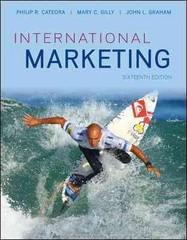Question
Susan is a self-employed consultant, earning $85,000 annually. She does not have health insurance but knows that, in a given year, there is a 5
Susan is a self-employed consultant, earning $85,000 annually. She does not have health insurance but knows that, in a given year, there is a 5 percent probability (i.e. 0.05) she will develop a serious illness. If so, she could expect medical bills to be as high as $30,000. Susan derives utility from her income according to the following formula:
U = Y(0.4), (i.e. Y raised to the 0.4 power), where Y is annual income.
Use this information to answer the questions below
A.What is Susan's expected utility?(round to two decimal places)
B. What is Susan's maximum willingness to pay for health insurance? (round to nearest whole number)
C. What is Susan's risk premium? (round to nearest whole number)
D. Susan is offered an individual, full-coverage health insurance policy for which she would have to pay a $2,000 annual premium. She is in the 22 percent tax bracket and could deduct the insurance premium from her taxable income. Would she buy the policy, and would the tax deduction affect (or change) her decision? Briefly explain.
Step by Step Solution
There are 3 Steps involved in it
Step: 1

Get Instant Access to Expert-Tailored Solutions
See step-by-step solutions with expert insights and AI powered tools for academic success
Step: 2

Step: 3

Ace Your Homework with AI
Get the answers you need in no time with our AI-driven, step-by-step assistance
Get Started


